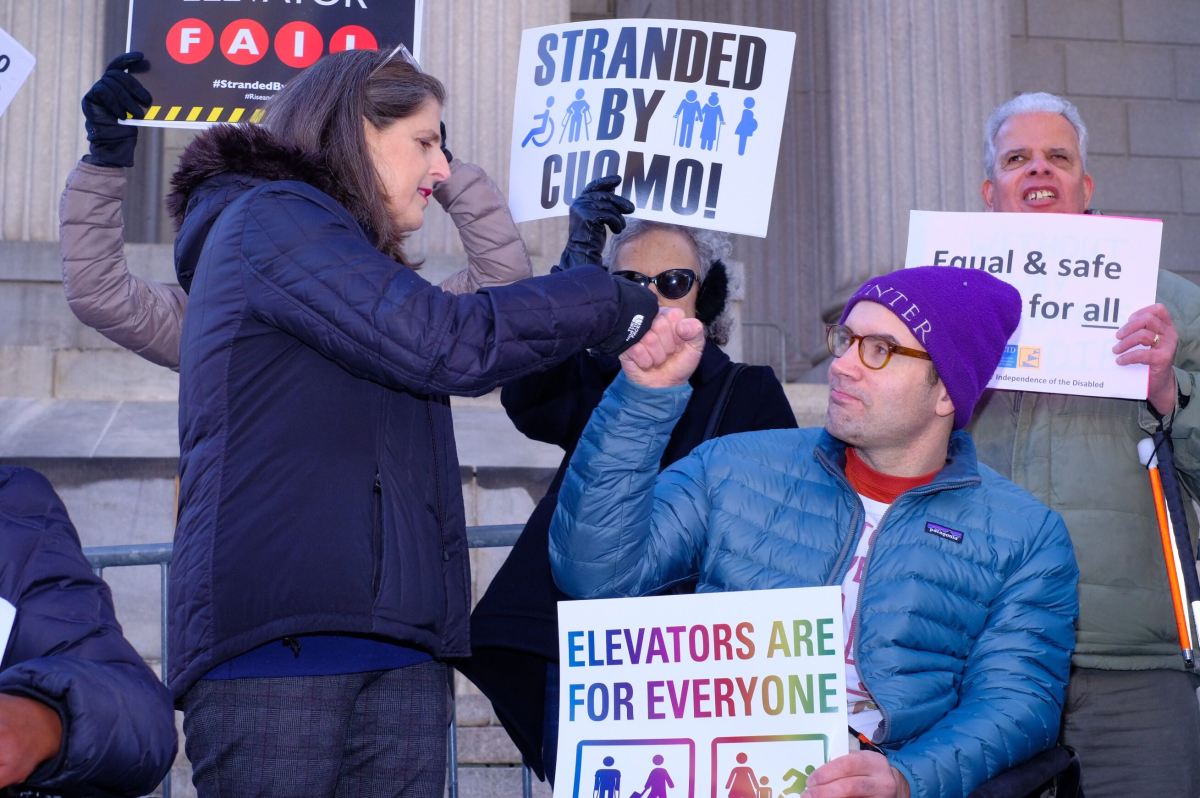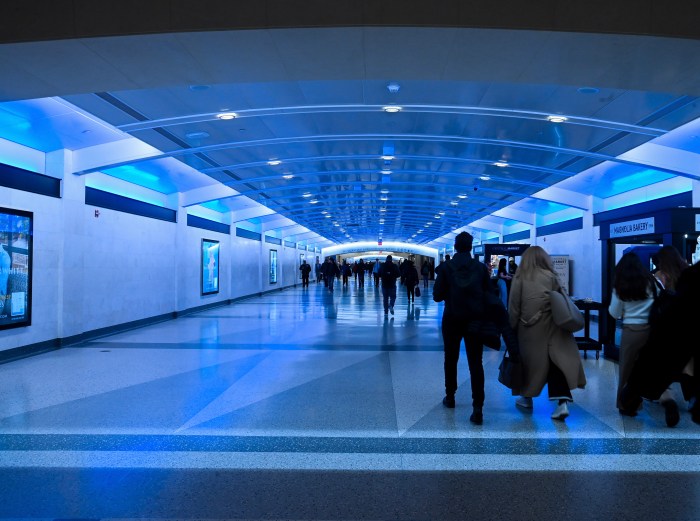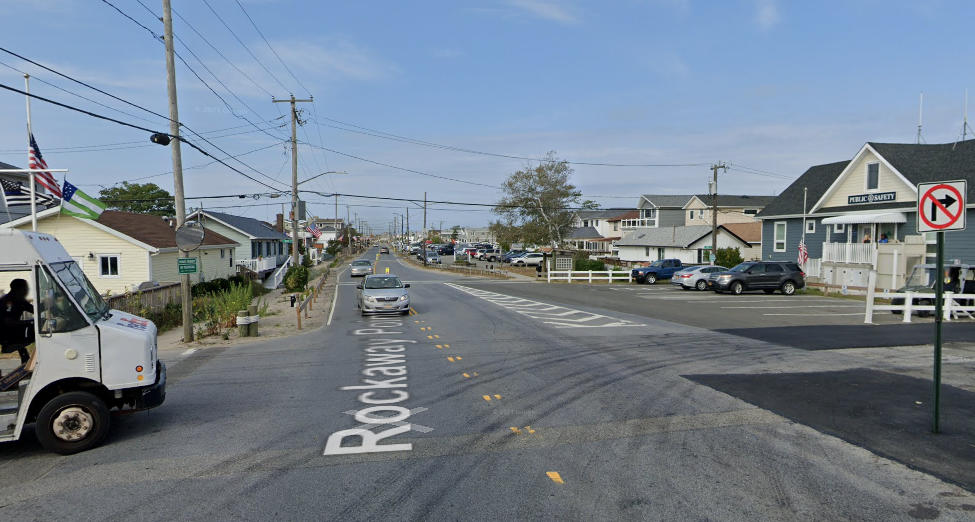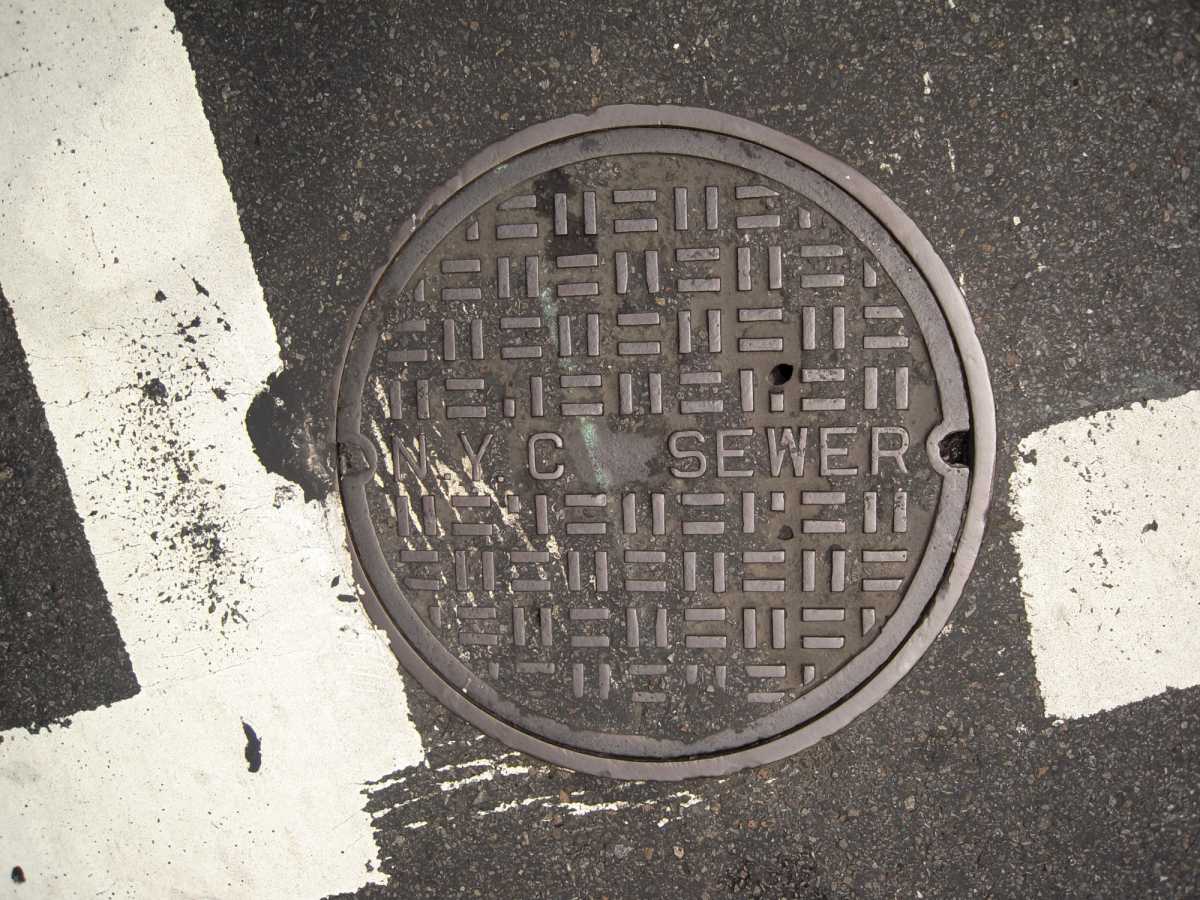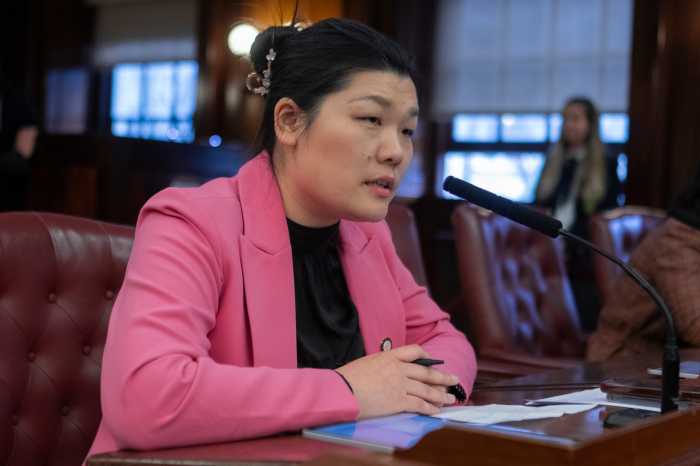For three years, the Center for the Independence of the Disabled (CIDNY) and the MTA have been going back and forth to court over a lawsuit regarding full accessibility at all New York City subway stations.
The latest chapter of the battle was written in Manhattan Supreme Court on Tuesday, with a discovery hearing that demonstrated some of the intricate legal hurdles that have slowed the case’s progress.
The MTA wants the CIDNY to provide emails based on 50 keywords from their clients about how the use the subway. Disability Rights Advocates – the legal nonprofit that represents CIDNY – say they want to provide the list, but there are technological constraints related to the Gmail system their clients use. They say 50 keywords are not feasible for a small organization, and they won’t allow the authority to sift through the information themselves.
The MTA, however, also argued against CIDNY’s own discovery request, claiming it would require need a massive data dump from multiple agencies over a period of years.
CIDNY Executive Director Susan Dooha has been involved with trying to get a formal and legal-binding commitment from the MTA to bring train stations up to par with federal ADA laws for over 30 years. She thinks there is framework for such a resolution.
“People like [outgoing New York City Transit President] Andy Byford, well-meaning as they are, come and go in the MTA with regularity, and to be counting on particular individuals to achieve a civil rights victory is probably not the best idea,” Dooha said. “I appreciate that accessibility will be achieved in stages, I wonder how many elevators they’ll actually install during this five year period and how many they’ll merely commit to contract for the future.”
But how far does the MTA have to go?
There are 124 stations in compliance with disability laws, with 24 being added in the last capital plan and 70 are included in the current 2020-2024 budget. This will push the number of handicap accessible stations closer to 50 percent.
Current timelines that Byford previously established aim to have the system fully accessibly by 2035. Dooha sees this as a reasonable timeline for the kind of joint agreement they’re looking to compel the MTA to sign.
“The MTA is committed to providing accessibility throughout the subway system. That’s why we’ve allocated $5.5 Billion to make an additional 70 stations fully ADA accessible,” MTA spokesman said in an official statement. “We continue to pilot new technology and creative solutions at the Jay Street-Metrotech station that assist people with disabilities in navigating through stations. The Paratransit program is expanding access to the experimental e-hail program. Beyond that, we have no comment on pending litigation.”
Prior to the hearing, advocates held a rally dedicated to Malaysia Goodson, a woman who died in January 2019 after taking a fall while carrying a stroller down the stairs at a station. The plaintiffs then made their way into 60 Centre St., where Judge Schlomo Hagler presided over the discovery negotiation.
But Hagler did not see the case moving forward until the appellate court came to a conclusion about the merits of the complaint. Even so, debates over discovery continued.
“This can be potentially seen as an attempt to chill people’s willingness to bring lawsuits against the MTA,” Michelle Caiola, Managing Director Litigation at DRA, argued.
The plaintiffs said the burden of searching gmail records for evidence would be too burdensome for nonprofits in that when keywords are searched on gmail. Sifting through the data would be a monumental effort, the plaintiffs argued.
“They elected to be plaintiffs in this courtroom, surely they expected to be subject to the burdens of discovery,” an attorney representing the MTA told the judge.
City representatives at the hearing were asked by plaintiffs if the city owns the subway system. Hagler held them to responding to which the city rep was silent.
The hearing did not end in agreement. Instead, a follow-up hearing was scheduled for March.
This story has been updated with official comment from the MTA.



